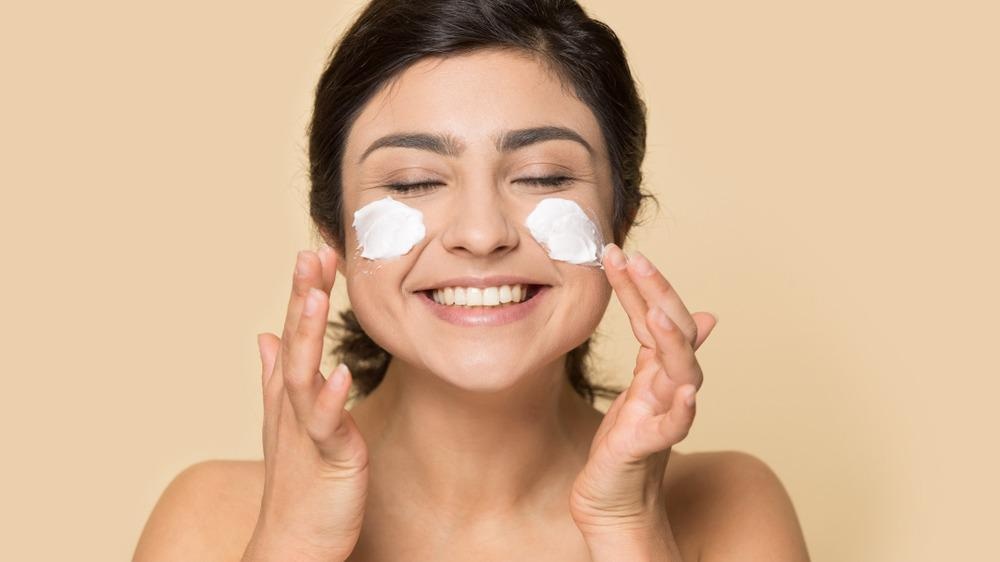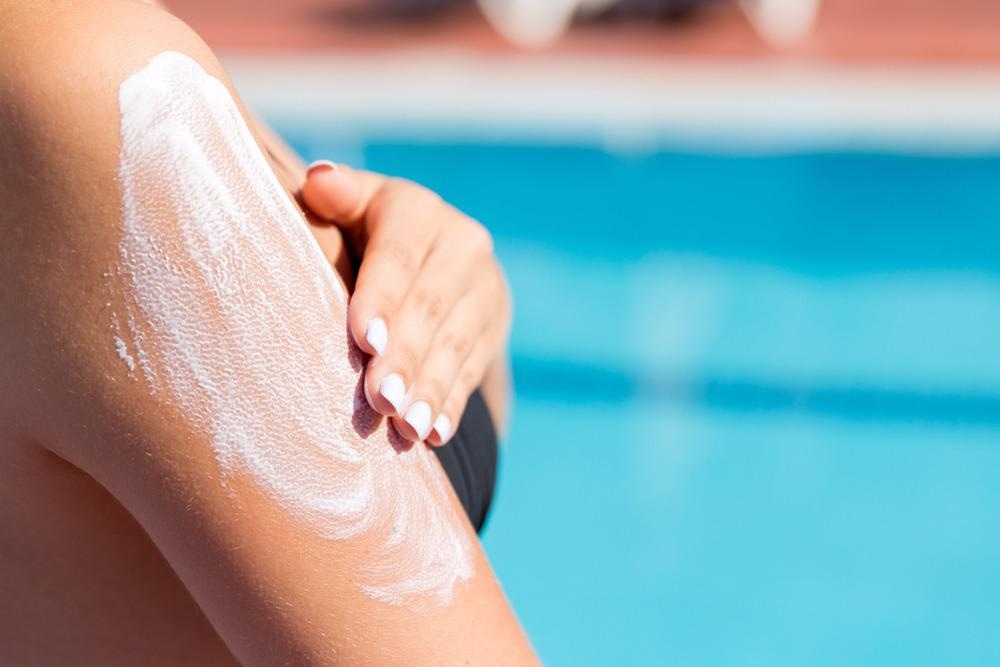Everyone wants to achieve healthy and glowing skin, but what actually is healthy skin? Does it mean having brighter skin or having clear skin? The definition of healthy skin may differ from person to person.

Keeping your skin healthy. Image Credit: fizkes/Shutterstock.com
Understanding the skin
First, we need to understand our skin: the texture, layers of the skin and types. We have three layers of tissues; epidermis, dermis, and hypodermis, and each of them has an important role. These layers protect our skin from dust and any other harmful things. Damage to any of these can lead to damaged skin.
How to maintain the moisture of the skin
Leakage of water or moisture through the skin can lead to dry and flaky skin and can cause bumps on the skin making your skin rough. Moisturizers can be essential for the skin to lock in moisture and prevent dryness. Moisturizers containing natural ingredients like vitamins and essential oils such as tea tree, vitamin e, etc., are best.
Many people think that if they have oily skin they do not need any moisturizers and skip it, but this can damage the skin in the future. Our skin goes through much stress, such as pollution and UV exposure, and it needs proper care.
No matter how much moisturizer you use, it is only the external treatment. Your skin needs internal care as well. Water is essential for our skin, making up a significant portion of the body itself. Water helps our body stay hydrated, keeping the skin vibrant and healthy.
How to stop skin aging
Proteins like collagen and elastin help maintain the youth of our skin. Reduction in collagen production during old age is very common, resulting in dull skin and wrinkles. There are creams in the market specially designed to stop aging and wrinkles, creams that can help reduce the appearance of aging and wrinkles to some extent. Ingredients like vitamin C, retinol, and sunscreen are scientifically proven to be effective in slowing the aging process.
However, applying creams will not get rid of wrinkles completely. The maintenance of a healthy diet and proper nutrition are also needed for healthy, smooth skin. Fruit and vegetable intake and some multivitamins can help maintain youthful skin.
However it should also be recognized that aging is a natural process that affects the body in many ways, including the appearance of skin. “Anti-aging” products can only do so much.

Sunscreen is essential for protecting the skin. Image Credit: SNeG17/Shutterstock.com
Skincare tips
Some tips for healthy and clear skin are:
- Using sunscreen on a daily basis. Sun exposure causes the most damage to our skin. As well as successfully protect our skin from harsh UV rays, preventing blemishes and hyperpigmentation in the future, sunscreen is crucial in preventing skin cancers.
- Maintain a skincare routine. Try to follow a simple skincare routine every day, both day and night, to clean the skin e.g. face wash, toner, and moisturizer. The steps will be the same for both day and night, except in the daytime it should include sunscreen. Avoid using harsh products.
- Avoid smoking. Smoking can cause wrinkles and quicken the aging process.
- Follow a healthy diet. No matter how much you take care of your skin from the outside, if the things you are consuming are not good, it will reflect through your skin. Drink a lot of water and eat lots of fruits and vegetables.
- Stress management. Stress can trigger many skin problems, as it disturbs the hormones resulting in pimples.
- Adequate sleep. Proper sleep is an essential part of skincare, although it is often neglected. Lack of sleep can lead to dull skin and dark circles.
- See a dermatologist. If you want to take advanced care of your skin or you are suffering from skin problems, then you should seek help from a qualified professional such as a dermatologist.
Our skin can display signs that we are not healthy on the inside, be that through diet, mental stress or something else. We need to understand our skin properly and take necessary actions to keep ourselves healthy and fit inside and out.
References
Further Reading
Last Updated: Mar 21, 2022